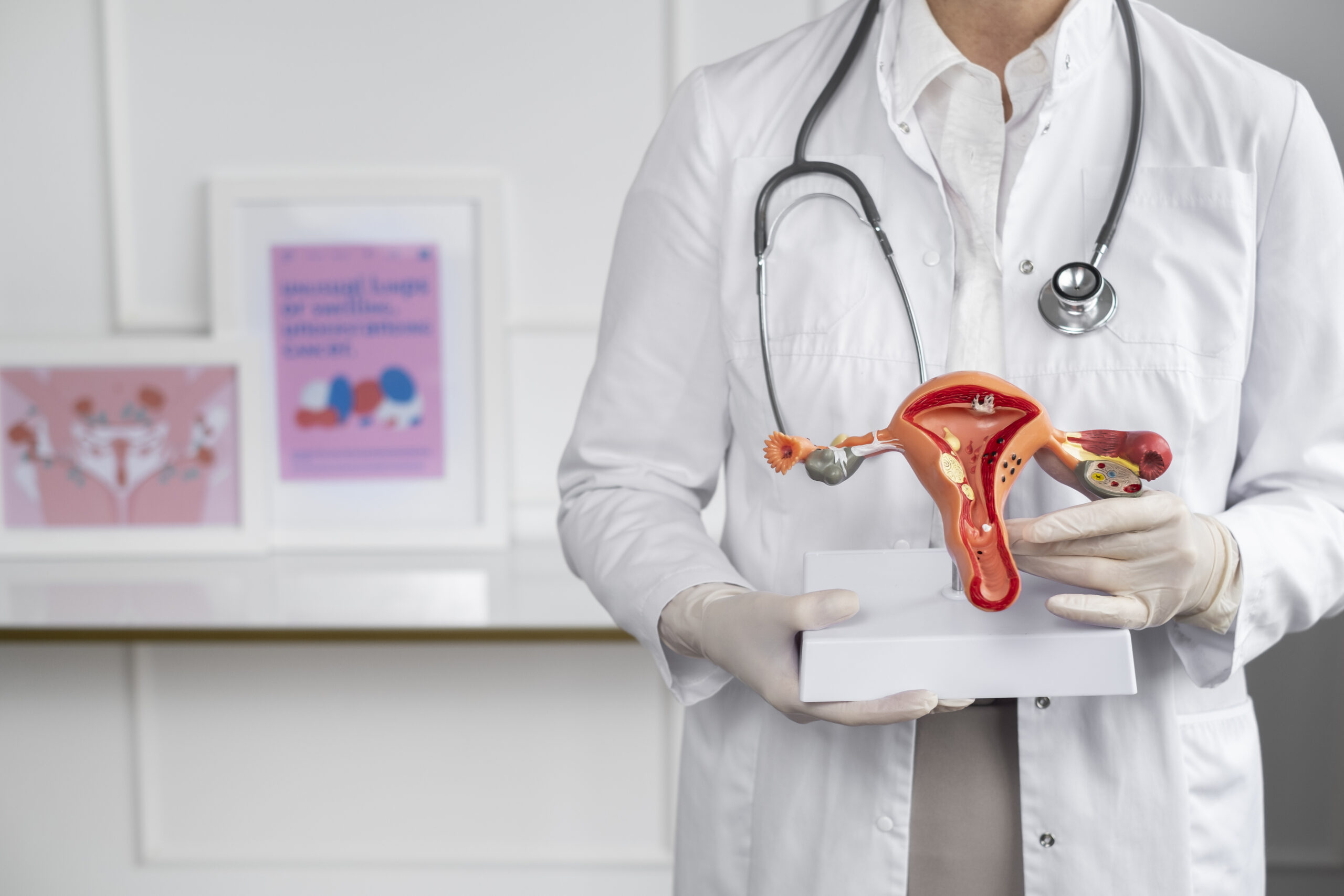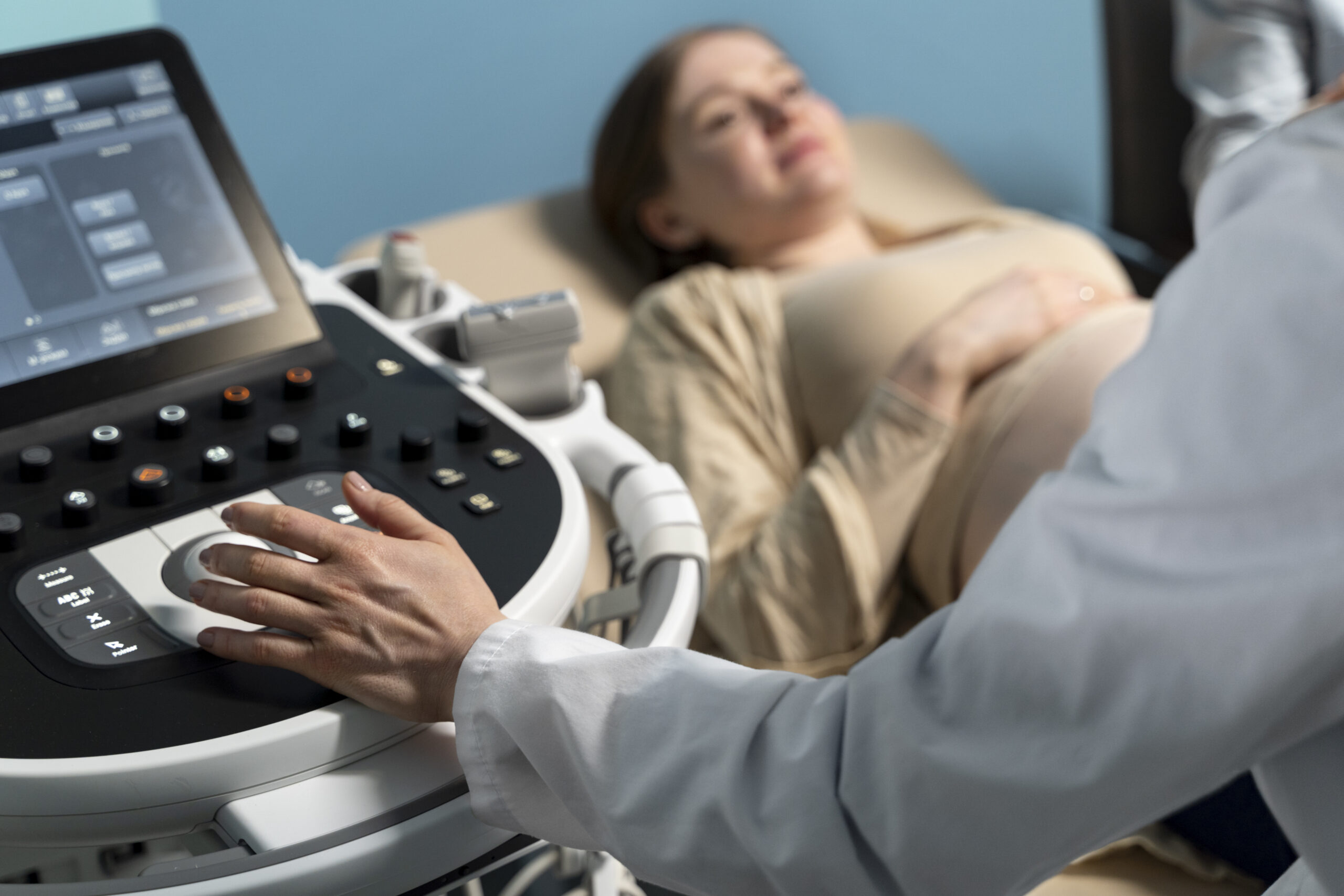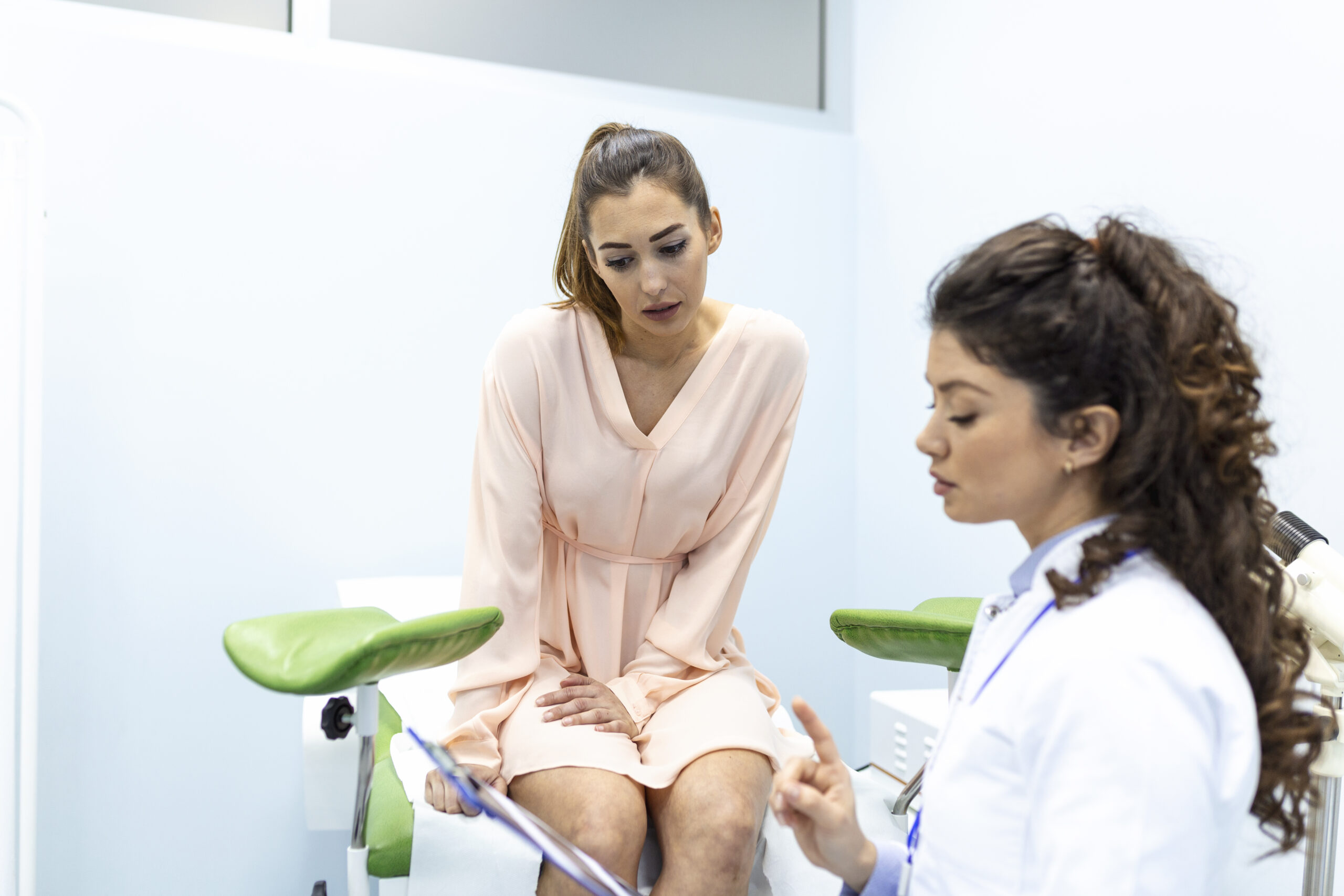An obstetrician-gynecologist is a medical specialist focused on women's reproductive health, including the anatomy, physiology, and potential disorders of the reproductive organs. This professional possesses comprehensive expertise in clinical assessment, diagnostic procedures, and both conservative and surgical interventions for conditions affecting the reproductive system.
Their scope of practice encompasses consultation services in specialized clinics, the performance of surgical interventions in gynecological settings, and attendance in labor and delivery units.

A vaginal examination by a gynecologist![]() permits one to evaluate the state of its mucosa and carefully examine the beginning of the cervix, where modifications in the epithelium often happen. Diagnosing them early (and, if necessary, removing them) allows us to avoid developing a malignant tumor.
permits one to evaluate the state of its mucosa and carefully examine the beginning of the cervix, where modifications in the epithelium often happen. Diagnosing them early (and, if necessary, removing them) allows us to avoid developing a malignant tumor.
A gynecological examination![]() allows the estimation of the size of the appendages and uterus, their position, mobility, discomfort, and sensitivity to touch. Thanks to this part of the consultation, the specialist may initially diagnose, for example, pregnancy or changes (e.g., tumors) in the reproductive organs (uterine fibroids, cysts, and malignant tumors).
allows the estimation of the size of the appendages and uterus, their position, mobility, discomfort, and sensitivity to touch. Thanks to this part of the consultation, the specialist may initially diagnose, for example, pregnancy or changes (e.g., tumors) in the reproductive organs (uterine fibroids, cysts, and malignant tumors).
Common diseases![]() treated by a gynecologist include:
treated by a gynecologist include:
Every woman needs to attend regular gynecological check-ups![]() . It's recommended that these visits be scheduled once a year. The first visit to the gynecologist should take place within a year of becoming sexually active (or by the age of 25 for virgins).
. It's recommended that these visits be scheduled once a year. The first visit to the gynecologist should take place within a year of becoming sexually active (or by the age of 25 for virgins).
The best time for the annual gynecological visit is between the 3rd and 5th day after menstruation. At this time, the gynecological examination is easier because there is no bleeding, and it's also the ideal time to assess the reproductive organs through an ultrasound examination (USG), perform cytology, and conduct a breast examination.
In addition to routine visits to the gynecologist, a woman should visit the office whenever:
Non-intercourse patients under 18 years of age may also require a visit to a gynecologist, so it is best to contact a girls' gynecologist. Indications for seeing a doctor include, among others, abnormalities in sexual maturation (e.g. onset of menstruation too early, i.e. before the age of 10, or absence of the first menstrual period after the age of 16).
The first visit to a gynecologist during pregnancy![]() is different from follow-up visits. During the first visit, the doctor will create a pregnancy card, conduct an obstetric interview, perform obstetric, cytological, and ultrasound tests, and order a whole range of additional tests.
is different from follow-up visits. During the first visit, the doctor will create a pregnancy card, conduct an obstetric interview, perform obstetric, cytological, and ultrasound tests, and order a whole range of additional tests.
During the obstetric interview, the gynecologist will ask about previous pregnancies, deliveries, and miscarriages. This is very important information for the doctor supervising the pregnancy. The answers to these questions determine what care the pregnant woman will require.
Before your visit, remember the date of your last menstrual period. On this basis, the doctor will determine the expected date of delivery.
During the first visit, the gynecologist will also perform obstetric tests – measure the patient's height, body weight, and blood pressure, and perform a typical gynecological examination, during which he will collect material for a cytological examination. If the doctor has the appropriate equipment, they will perform a transvaginal (intravaginal) ultrasound examination.

Women often come to the gynecological office between the 6th and 8th weeks of pregnancy. The motivation for the consultation is usually to stop menstrual bleeding. However, it is worth knowing that the first visit to a gynecologist during pregnancy should occur before the 10th week. Sometimes, women experience other pregnancy symptoms, such as morning sickness or breast tenderness.
During the first and each subsequent visit to the gynecologist, a pregnant woman will have a classic examination performed on a gynecological chair. Gynecological examination during pregnancy consists of assessing the external reproductive organs, speculum examination, palpation, and breast examination.
The main purpose of a gynecological examination during pregnancy is to check how a woman's body is preparing for childbirth. Examination on a gynecological chair allows the doctor to, among other things, assess whether the woman is at risk of premature labor or premature shortening of the cervix. Gynecological examination during pregnancy is completely safe.
The gynecologist also creates a pregnancy card to document test results, fetal development, and the patient's health condition.
Subsequent follow-up visits should take place every month or 2 weeks, depending on the advancement of pregnancy and the patient's condition.
Additionally, at least 3 visits during which an ultrasound examination is performed are recommended:
The first visit to the gynecologist should take place after the first period. Gynecological examination of girls is different from examination of adult patients. The doctor most often examines the external reproductive organs visually and by touch and uses small specula or laryngological specula to examine the vaginal walls.
Except in exceptional situations, such as bleeding from the genital tract, suspicion of a foreign body in the genital tract, or cancer, the doctor does not perform a full gynecological examination in adolescent girls![]() . In vaginal ultrasound, transvaginal ultrasound is most often replaced by transabdominal ultrasound when the bladder is full.
. In vaginal ultrasound, transvaginal ultrasound is most often replaced by transabdominal ultrasound when the bladder is full.
The first visit is a good opportunity to instruct the patient in breast self-examination and to recognize disturbing symptoms of the reproductive system, as well as to provide information about the vaccine against human papillomavirus (HPV), recommended for girls after the age of 11 and before first sexual contact.
A common gynecological problem in patients under 18 years of age that requires a gynecological consultation is premature or delayed puberty.
After performing tests and establishing the diagnosis, the gynecologist may refer the patient to a consultation with another specialist, e.g., an endocrinologist.
To begin, the doctor will have a conversation with the patient, inquiring about the regularity and duration of their menstrual cycles, the length and heaviness of their periods, any troubling symptoms they may be experiencing, any chronic illnesses or conditions in their immediate family, their history of previous pregnancies and deliveries, miscarriages, surgeries, allergies, and also when they last underwent diagnostic tests such as pap smears.
At the next stage, the gynecologist asks the patient to prepare for the gynecological examination, which takes place in a semi-recumbent position on a specially designed gynecological chair. It is required to undress from the waist down in a place appropriate for this purpose. In some offices, disposable skirts are available while moving to the gynecological chair. It is not necessary to remove socks and shoes from your feet.
In a gynecological examination, the doctor first checks the external genital organs and then uses a speculum to examine the cervix and vaginal walls and collect cytology samples. After that, the doctor performs a two-handed examination, inserting one or two fingers into the vagina while using the other hand to press the lower abdomen.
This allows the doctor to assess the position and size of the uterus and check for any abnormal growths in the reproductive organs. In the case of a virgin, the examination may conclude with an inspection of the vulva, and in some cases, a two-handed examination may be performed through the anus. Depending on the shape of the hymen, it may be possible to use narrow, specially designed speculums for a vaginal speculum examination.
Following this, the doctor performs an ultrasound of the reproductive organs, usually transvaginally. During the second and third trimesters of pregnancy, and in some situations, this ultrasound may also be done through the abdominal wall. A breast examination may also be conducted as part of the overall assessment of a woman's health, usually after the reproductive organ examination.
At the end of the visit, the gynecologist summarizes the information obtained from the conversation and examination, clarifies doubts, and issues recommendations and prescriptions.
Good preparation for each visit, not just the first one, is half the success. It is best to visit a gynecologist for a check-up a few days after your period ends. You can also go to another phase of the cycle – at most, it will not be possible to take a cytology test if you come during your period.

If necessary, the doctor may ask for additional information during the visit. You can also prepare questions you would like to ask the doctor at the end of the visit.
Depending on the indications, the specialist may collect additional testing materials during the visit. The sample is collected through a speculum using a special brush or stick. These include cytology and a swab from the birth canal. During the visit, the gynecologist may also examine the breasts. In such a situation, the patient will be asked to remove her blouse and bra. Imaging tests that may additionally be performed in a gynecological office include:
With proper preparation, a visit to the gynecologist is not painful. The specialist will ensure the patient's comfort and sense of security in the office. Any doubts during the examination should be clarified immediately with the doctor.
Midwives![]() in their offices devote much time to pregnant women because relatively few women use this form of care. Women receive interest and emotional support from the midwife and often personal knowledge about care and coping with pregnancy ailments. This is an ideal solution for future mothers who want continuity of care during pregnancy, childbirth, and after childbirth.
in their offices devote much time to pregnant women because relatively few women use this form of care. Women receive interest and emotional support from the midwife and often personal knowledge about care and coping with pregnancy ailments. This is an ideal solution for future mothers who want continuity of care during pregnancy, childbirth, and after childbirth.
Midwife responsibilities include: